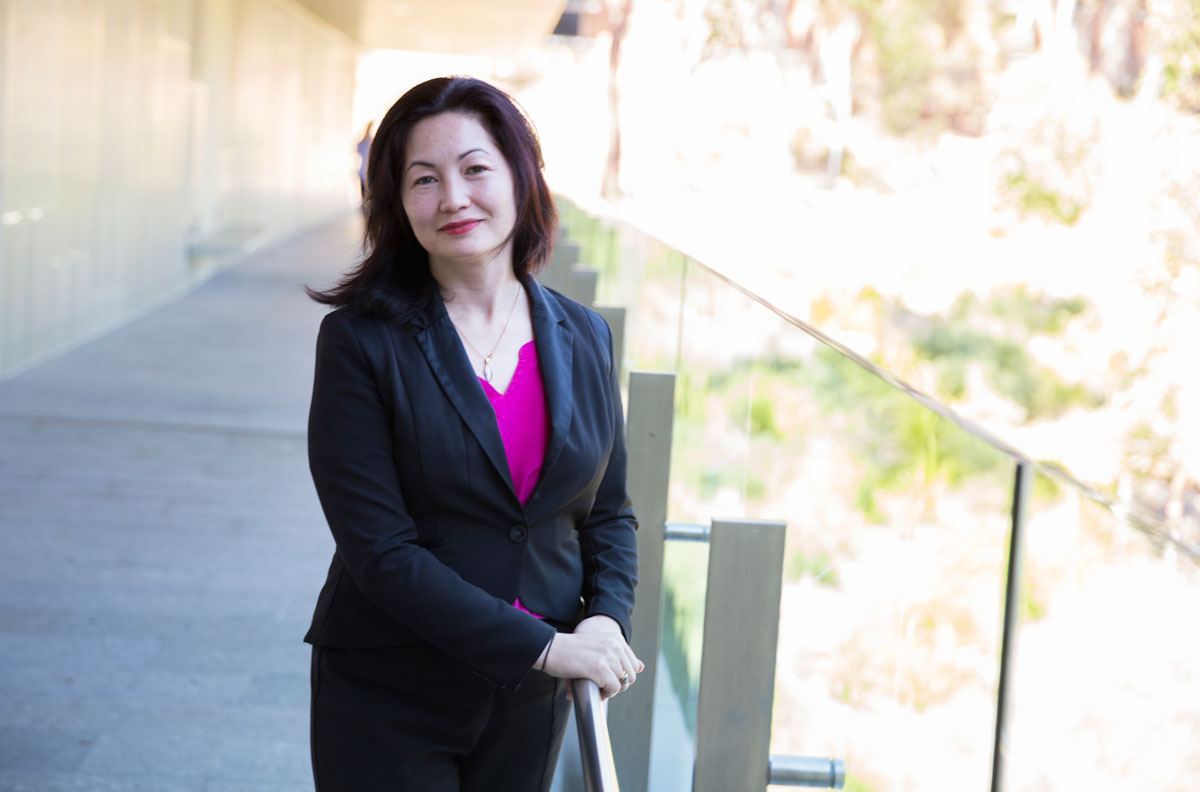Researcher Highlights
Broad experience, broad applications
Dr Mariko Carey
Dr Mariko Carey is using her transdisciplinary experience to research and implement optimal care for an array of health conditions and practices.

“I’ve got a student doing some really fantastic research looking at improving bowel cancer screening in general practice, and another one doing some really interesting work looking at patients’ adherence to physiotherapy.
“I do like the variety.
“That’s one of the interesting things about behavioural science. There are of course specific settings and diseases, but key behavioural science principles can be translated and adapted across just about all of them.”
After studying at the University of Melbourne for her Bachelor of Science and Professional Doctorate in Psychology, Mariko went on to work in a number of part-time roles which gave her significant experience across a number of areas .
Mariko gained some key skills regarding clinical evidence and its translation when she worked within the National Institute of Clinical Studies (which later became part of the National Health and Medical Research Council, NHMRC ). At the time, it was Australia’s peak organisation for implementing evidence based practice.
“I learned a lot when I was there about the policy side of things.”
Having also worked clinically as a psychologist, Mariko has an important insight into the public health system.
“I was working with people with chronic diseases."
“That's what allowed me to see first-hand the sort of challenges that patients face, as well as the challenges health care professionals face in trying to deliver high quality care. That got me interested in looking at the interface between research and policy.”
Transdisciplinary teamwork
Although she was always interested in research, the career pathways were never quite as clear for research as they were for a practising psychologist. It wasn’t until Mariko started working within a transdisciplinary cancer team at the Peter MacCallum Cancer Centre that she learned how to navigate the research environment.
“That was a really interesting place to learn about research. Because we were located in a hospital there was a really good link with the clinical services, so we got to see how problems that arise in clinical care can be related to research and vice versa.”
An international reputation
Later on, Mariko was successful in applying for a Research Fellow position with Laureate Professor Rob Sanson-Fisher and UON’s Priority Research Centre for Health Behaviour.
In 2015, she was awarded an NHMRC TRIP (Translating Research into Practice) Fellowship, and is more than happy to continue her vital work within the prestigious research group.
“Newcastle has a really excellent reputation for behavioral science. So when that initial research role came along that was a very attractive opportunity – to be able to work with people that are internationally renowned in this area."
“While I was still very interested in cancer and wanted to continue that, I wanted to get some experience in a broader range of things as well.”
Mental health care beyond the consultation room
Mariko was recently granted NHMRC funding for a research project designed to improve diagnosis and care for mental health patients.
The project is based on some of her previous research, which showed that around 50 per cent of people with elevated depression scores aren’t identified as having depression by their general practitioner (GP).
“I think the main issue is that depression is a relatively common but often people will go to see their GP for another reason."
“Depression might not be the primary reason you're going to see your doctor. It might be because you have chronic disease or a cold or infection … but when GPs have got someone in front of them who's asking for help for a particular problem, it’s difficult for them to also identify all of these other possible issues within that 15 minute consultation.”
Instead, Mariko’s project will see patients being screened for their mental health before their consultation even begins.
“We'll be looking at the impact of screening using a self-completed screening instrument in the waiting room."
“That will be done via an online survey which will generate automatic feedback to the patient and their GP.”
While similar research has been conducted in the US, this is the first time that mental health screening practices such as these have been looked at in the Australian context.
In this randomised control trial, half of the participating clinics will be randomised to the current standard of care and half to the screening intervention.
“Another benefit of the screening is that we’re able to ask people about preferences for their health care."
“There are lots of different types of treatment, from psychological therapies to medication."
“If someone has a particular preference for their treatment and it’s not being offered to them, then sometimes that can be another barrier to them getting help.”
At the coalface of translation
“Unfortunately a lot of the investment in health and medical research is lost because there's a failure to effectively transfer it into routine practise."
“It's quite a complex area that involves identifying the barriers to translation and trying to develop strategies to produce change at the individual level but also at the system level."
“We work with patients, health care providers but also the health care organisations."
“We have to make sure the organisations have the tools and the systems and the processes to support our health professionals in delivering high quality care.”
The University of Newcastle acknowledges the traditional custodians of the lands within our footprint areas: Awabakal, Darkinjung, Biripai, Worimi, Wonnarua, and Eora Nations. We also pay respect to the wisdom of our Elders past and present.